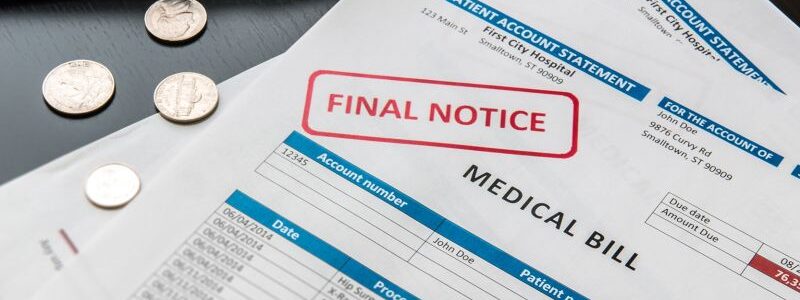Navigating the labyrinth of medical bills can be daunting. With a mix of complex terminologies, varying charges, and insurance intricacies, it’s no wonder patients often feel overwhelmed. However, understanding your medical bills is crucial for managing your healthcare expenses effectively. In this guide, we’ll demystify medical billing and provide you with practical tips to handle your medical bills like a pro.
The Basics of Medical Billing
So, what exactly is a medical bill? Simply put, a medical bill is a detailed statement of the services and treatments you received from healthcare providers. It includes various charges for procedures, consultations, tests, and medications. Understanding the key components of your medical bill is the first step in managing your healthcare costs.
Decoding Medical Terminology
Medical bills are notorious for their jargon and abbreviations. Terms like CPT (Current Procedural Terminology) codes, ICD (International Classification of Diseases), and EOB (Explanation of Benefits) can be confusing. Knowing these terms and how to interpret medical codes can help you make sense of your bill:
- CPT (Current Procedural Terminology) Codes
CPT codes are standardized codes used to describe medical, surgical, and diagnostic services. These codes are used by healthcare providers and insurance companies to communicate about medical services. Understanding CPT codes can help you verify that you were billed correctly for the services you received.
- ICD (International Classification of Diseases) Codes
ICD codes are used to classify and code diagnoses, symptoms, and procedures. The ICD system is maintained by the World Health Organization (WHO) and is used internationally. For example, ICD-10 code J18.9 refers to pneumonia, unspecified organism. These codes are essential for medical billing and insurance claims, as they specify the exact reason for your medical visit or treatment.
- EOB (Explanation of Benefits)
An EOB is a document provided by your insurance company that explains what medical treatments and services were paid for on your behalf. It details the amount billed by the healthcare provider, the amount covered by insurance, and what you owe. The EOB helps you understand how your insurance benefits were applied and ensures that you were billed correctly for services rendered.
Types of Medical Bills
Medical bills can come from different sources, including hospitals, doctor’s offices, and laboratories. Hospital bills typically cover a range of services from room charges to surgical procedures, while doctor’s office bills usually include consultation fees and minor treatments. Laboratory and diagnostic test bills encompass charges for blood tests, urinalysis, and other diagnostic services.
Insurance and Medical Billing
Understanding your insurance policy is vital when dealing with medical bills. Your insurance plan determines what portion of your medical expenses will be covered and what you will need to pay out-of-pocket. Familiarize yourself with terms like deductibles, co-pays, co-insurance, and out-of-pocket maximums to better understand how your insurance impacts your medical bills.
Common Billing Errors
Billing errors are not uncommon and can lead to overcharges. Errors such as duplicate charges, incorrect coding, and unbundled services can inflate your bill. Always review your medical bills carefully, and if you spot an error, contact your healthcare provider or insurance company to have it corrected.
Negotiating Medical Bills
Believe it or not, medical bills are often negotiable. If you find yourself with a hefty bill, don’t hesitate to negotiate with your healthcare provider. You can request a discount, especially if you’re paying out-of-pocket or if your income is limited. In some cases, hiring a medical billing advocate to negotiate on your behalf can be beneficial.
Payment Plans and Financial Assistance
If you can’t afford to pay your medical bill in full, ask your healthcare provider about payment plan options. Many providers offer installment plans that allow you to pay your bill over time. Additionally, you may be eligible for financial assistance programs based on your income and financial situation.
Preventing Surprise Medical Bills
Surprise medical bills can occur when you receive services from out-of-network providers. To avoid unexpected charges, always check if your healthcare providers are in-network before receiving treatment. Understanding the difference between in-network and out-of-network providers can save you a lot of money and stress.
Dealing with Denied Claims
Insurance claim denials are frustrating, but they can often be appealed. Common reasons for denial include lack of pre-authorization, missing information, or the service being deemed not medically necessary. If your claim is denied, review the denial reason, gather any required documentation, and submit an appeal promptly.
Keeping Accurate Records
Maintaining organized medical records is essential for tracking your medical expenses and resolving billing issues. Keep copies of your medical bills, insurance statements, EOBs, and any correspondence with healthcare providers and insurance companies. Having these records handy can simplify the process of managing your bills and disputing errors.
Legal Rights and Protections
Patients have legal rights regarding medical billing and payments. Laws like the No Surprises Act provide protections against unexpected out-of-network charges. Additionally, state regulations may offer further protections. Knowing your rights can empower you to advocate for fair billing practices and seek resolution when issues arise.
Understanding medical bills may seem overwhelming at first, but taking the time to educate yourself can save you money and stress. By familiarizing yourself with medical billing terms, checking for errors, negotiating bills, and knowing your rights, you can take control of your healthcare finances. Remember, it’s your health and your money, so don’t hesitate to ask questions and seek medical assistance when needed.
FAQs
How can I get a detailed breakdown of my medical bill?
You can request an itemized bill from your healthcare provider, which will list each service and its associated cost. This can help you understand exactly what you are being charged for.
What should I do if I can’t afford to pay my medical bill?
If you can’t afford to pay your medical bill, contact your healthcare provider to discuss payment plan options or inquire about financial assistance programs.
How long do I have to dispute a billing error?
The timeframe to dispute a billing error varies by provider and insurance company, but it’s generally best to address any discrepancies as soon as you receive your bill or EOB.




